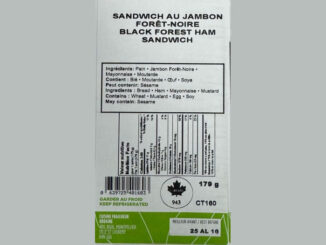
Jim Prevor
The deli that lived off the traffic of grocery buyers must now be the draw that drives consumers into the store.
August/September 2021 – As the United States moves from the COVID pandemic, there are, predictably, fits and starts. The Delta variant, with its higher transmissibility, is leading government officials to reimpose mask mandates and leading schools and private institutions to slow down reopening. At the same time, with vaccinations in the United States now freely available to all, we are starting to see both public and private entities imposing vaccination mandates. Google, Facebook, many colleges and universities, government employers, all are mandating vaccinations.
There are uncertainties. Israel, the leader on vaccinations from the start of the pandemic, has started giving third doses of the Pfizer vaccine to people over 60 years old as well as those with compromised immune systems. Though there are positives on trade and travel—with Europe and the UK, for example, now open to vaccinated Americans—much of the world is not vaccinated and won’t be for an extended period.
It is not clear why the vaccines, with over 4 billion doses now in people’s arms, have not yet received final, non-emergency approval, but within a few months this will start to happen. Also, the vaccines are likely to be approved for younger children. Already there are vaccines available for everyone 12 and older. Very likely, there will be an integration of COVID vaccines with other vaccinations required for children to attend school. Inoculations against diphtheria, tetanus, acellular pertussis, polio, mumps, measles, rubella, hepatitis B, chicken pox, etc., are all commonly required in many states. COVID inoculations will likely be required, as well.
As the supermarket deli comes through the pandemic, it is likely to find itself in a more difficult position than it did entering the pandemic. Many restaurants that previously had not focused on takeout have become quite expert at it. Many that offered only pick-up now work seamlessly with services such as Delivery Dudes, Grubhub and Uber Eats to offer delivery.
The data won’t be in for a while, but it is quite likely that supermarkets, where many have grown used to ordering remotely, will experience less frequent consumer visits or that consumers will spend less time per visit. Either possibility would probably hurt supermarket deli sales.
What was once an advantage for the deli—having lots of shoppers in the midst of a large, crowded store—is likely to be diminished, as visits and time spent in the store will be less for many shoppers.
The big issue, though, is probably culinary, with a technological twist. The big advantage supermarket delis have always had is wide variety. One could get a sub, a slice of pizza, fried chicken, rotisserie chicken, etc., all in one place, but the delivery services have undercut this advantage. I’ve watched my teenage sons order lunch with friends, and the question, “where should we order from?”—my generation’s question—is no longer very relevant. With the advent of Ghost Kitchens, especially, why can’t one kid order the lasagna he is craving from an Italian place, while another gets Chinese, and still a third orders a churrasco steak from an Argentinian place? They can, and they will.
The great advantage of the supermarket deli, which was convenience (people were going there anyway), combined with variety (shoppers aren’t restricted to just one cuisine as one is at most restaurants) all seems less relevant today.
The positive of all this is, of course, that fresh food/deli offerings will become all the more essential to the success of the overall store. In many stores, however, the deli offerings are dated. Ham sandwiches and macaroni salad are still popular, but the changing population, changing tastes brought on by broader travel, the Food Network, etc., create greater demand for a broader range of delicious ethnic foods, and only a few of the premier deli operations do a good job of providing these options.
With dry grocery moving more to delivery, supermarket deli operations can’t coast on the idea that shoppers already in the store will buy some deli products. The new attitude has to be that the deli is so good that it attracts the customers and, while they are there for the deli offerings, consumers pick up some grocery items, as well.
It is a world turned topsy-turvy, but it is quite likely.
When the British surrendered at Yorktown in 1781, thus effectively ending the American Revolution with victory for the Americans, the British troops assembled and their musicians played a song titled, “The World Turned Upside Down.” The end of the pandemic, and the rise in delivery services for both groceries and meals, means the world the supermarket deli grew up in is now being turned upside down.
The deli that lived off the traffic of grocery buyers must now be the draw that drives consumers into the store. It is a big change, an enormous challenge, but also an incredible opportunity. DB



